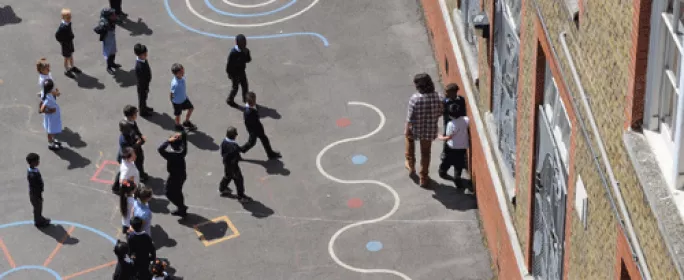Free schools not reaching the poorest, study finds
Free schools are opening up in disadvantaged neighbourhoods, but their intakes are better off than the average for their local area, according to new research.
The study, published today, also suggests that many of the primary-age children attending free schools have high levels of previous achievement. The revelations come despite the government rejecting accusations that free schools become the preserve of the urban middle-classes.
The research, by the Centre for Learning and Life Chances (LLAKES) at the University of London’s Institute of Education (IoE) examined the intakes of 88 primary and 63 secondary free schools which had opened by September last year. Around 331 free schools are now open or approved to open.
On average, free schools are being set up in disadvantaged areas, the study found, but fewer pupils attending these schools are eligible for free school meals (FSM) - a key measure of poverty.
Around 13.5 per cent of pupils attending primary free schools were eligible for FSM, it says, while within the neighbourhoods of free schools, 18.3 per cent of youngsters were eligible. Across the rest of England 15.9 per cent of primary-age children were entitled to FSM.
The findings also show that 17.5 per cent of pupils attending secondary free schools were entitled to free lunches, despite 22.1 per cent of young people being eligible in the areas surrounding the schools.
“The net effect is that the free secondary school pupils themselves are close to average for all secondary schools, and the free primary school pupils very slightly better off,” the study says. It goes on to show that there is a also “marked difference” at primary school level in pupils previous achievement.
Free school children have a distinctly higher average Foundation Stage Profile score - from early years education - than the average for their areas and the rest of England, the study suggests.
Study author Professor Francis Green said: “It appears that, so far, the places in reception at free primary schools are being filled by children who are somewhat less disadvantaged and more advanced in their development than the average. This outcome may be disappointing for the Government, which had hopes that its free schools policy would be a vehicle for delivering social justice.”
Natalie Evans, director of the New Schools Network said that, despite the research, free schools were benefiting some of the poorest areas. “The fact is that free schools are being set up in the communities that most need high-performing new schools - they are 10 times more likely to be in the most deprived parts of the country than the most affluent.
“Free school founders are choosing to set up in more deprived areas precisely because they want to make the biggest difference to children that do have access to the high quality education they deserve.
“And as they become an established part of the education system it is becoming increasingly clear that free schools are proving popular with parents from all backgrounds.”
Martin Freedman, director of economic strategy and negotiations at the Association of Teachers and Lecturers, said: “Free schools have brought in selection by the back door and become the elite institutions we feared they would be dominated by children with the pushiest parents.
“This report shows that even where free schools have opened in deprived areas they are still not taking the most disadvantaged children.”
Related stories:
A quarter of free schools open in areas with no need for extra places, report finds:11 December 2013
‘Why I believe in free schools and why I plan to open more’: 25 November 2013
Keep reading for just £1 per month
You've reached your limit of free articles this month. Subscribe for £1 per month for three months and get:
- Unlimited access to all Tes magazine content
- Exclusive subscriber-only stories
- Award-winning email newsletters




